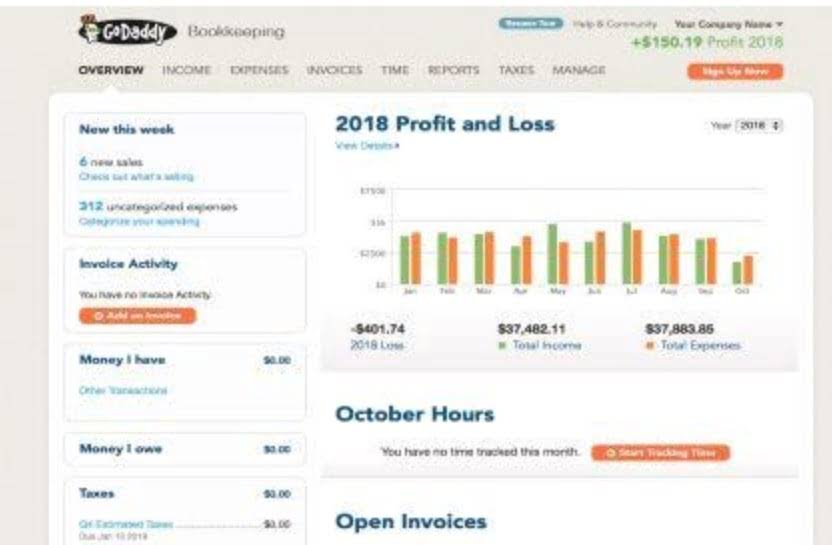Small Business Bookkeeping: A Beginners Guide

It doesn’t have a dedicated time-tracking tool, comprehensive mobile access, or inventory management, though. Moreover, keep all physical and digital receipts for proof of transactions and to support tax deductions. Regularly reviewing and updating income and expense records helps businesses maintain financial accuracy and identify areas of growth or areas that may need improvement. By effectively managing income and expenses, small business owners can build a solid foundation for a successful and well-organized enterprise.

Choose your bookkeeping method

Most offer free trials or a demo account and charge monthly subscription fees once you’re ready to commit. Generally speaking, the more you need from an accounting service, the longer it takes to set one up and the higher the monthly payment. That way, you won’t find yourself going through years of business transactions to find the one file you need.
- You never want to waste time chasing down last month’s missing invoice, and you certainly don’t want to find yourself in trouble with legal requirements.
- Efficient bookkeeping involves foresight, meaning that a business should always plan for upcoming financial events, including tax time.
- For instance, ever looked at your bank statements and thought, Where is all the money we made this month?
- Regardless of your small business’s complexity, bookkeeping will still take time out of your week, so be sure you have the resources before committing to handling it yourself.
- You should make bank reconciliations a weekly habit and ensure you match all your records to transactions while you do so.
- A well-developed payroll system is crucial for small businesses to ensure compliance with employment laws and regulations.
Simple Record Keeping: 6 Best Practices for Small Businesses
- With tax codes frequently changing, it’s important to ensure you follow the most current laws and regulations.
- You can also match related transactions, such as an invoice entered into the system and a corresponding payment that has come through.
- Digital recordkeeping of your business’s finances can streamline your bookkeeping process, reduce clutter, and improve data security.
- Accounting can be a challenge for a small business, but an organized record management system can make it easier.
- Importing e-receipts to your Shoeboxed account is as easy as syncing your Gmail with Shoeboxed, using Shoeboxed’s special Gmail Receipt Sync feature.
- It’s the most comprehensive accounting program we review, and it does more than what many small businesses need.
Small businesses often work with tax advisors to help prepare their tax returns, file them and make sure they’re taking advantage of small-business tax deductions. Though you may not work regularly with a tax specialist year-round, you’ll want to connect with one sooner rather than later so you’re not rushed come tax time. Keeping your business’s records on a computer follows the same principles as a manual system, except the computer automates the process so it’s faster and more accurate. A simple-to-use software program like Quicken (Intuit) or MS Money (Microsoft) eliminates the need for a handwritten set of books. You input each transaction (whether expense or income) into the software program and assign a category to each—whether a descriptive word like “advertising” or a number code such as “201.” An effective records management system doesn’t take much time to maintain and streamlines bookkeeping, tax preparation, and financial audits.
Can I do my own bookkeeping for my business?
Will your business be generating invoices, cost estimates, or billing statements? If you’re several years behind on your bookkeeping and taxes, you can get caught up and filed with Catch Up Bookkeeping. Dedicated to keeping your business finances operating smoothly so you can focus on your business. Traditional https://www.bookstime.com/ accounting methods, relying on manual processes and static reports, are no longer sufficient to meet the demands of today’s dynamic market. Thirdly, accurate records facilitate effective communication and collaboration. When information is accurately recorded, relevant stakeholders easily share and access it.

Turn business receipts into data & deductibles
As your business grows and your sales increase, recording every transaction can become unmanageable. You’ll also need the expertise of a qualified accountant to maintain accuracy and compliance. In double-entry bookkeeping, every transaction gets double the attention—first logged in a journal, then in the general ledger as both a debit and a credit.

Inventory management techniques for ecommerce businesses
- No matter what system you implement, incorporate a practice of reconciliations, by comparing the numbers in your system to the source records, like bank statements, receipts, and invoices.
- All you have to do is connect your ecommerce site to your accounting software and configure the settings.
- The IRS can audit your business’s financial records up to seven years in the past and even further back when you don’t file a tax return or are suspected of fraud.
- Accurate record keeping is a key to many aspects of your business’s success—from assessing your operation’s profit margins to ensuring that you comply with IRS tax rules.
If someone on your staff or an outside accountant prepares the report, review it for accuracy and keep apprised of your financial standing. There are some times that we’ll request documents Record Keeping for Small Business from you (like account statements or receipts), just to ensure the information we have is correct. If you need to share files with your bookkeeping team, it’s as simple as uploading a file.


